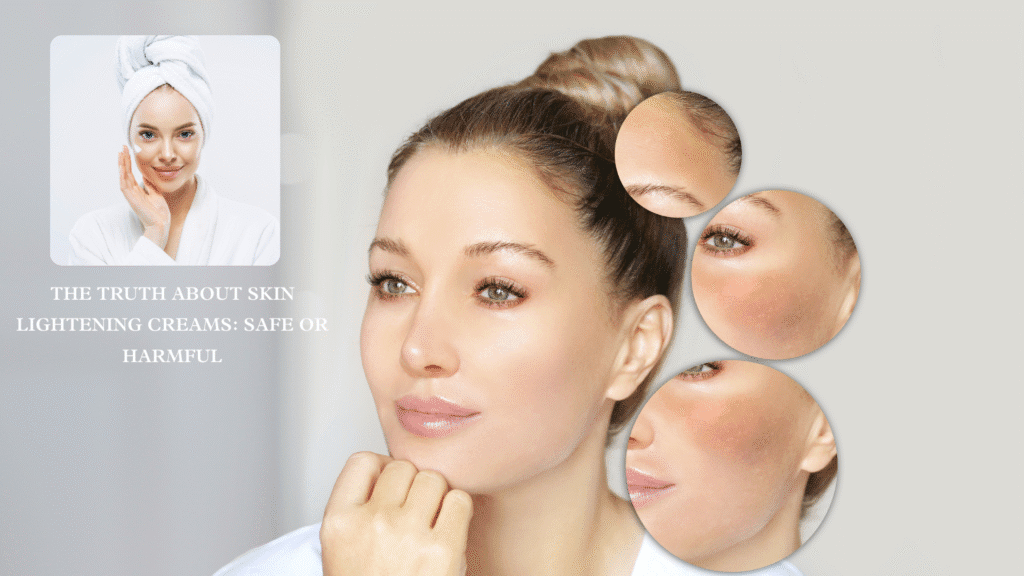
In the quest for flawless, even-toned skin, many individuals turn to skin lightening creams. These products are widely marketed to reduce pigmentation, dark spots, and improve skin radiance. But with growing concerns around side effects and long-term skin damage, a critical question arises: Are skin lightening creams safe or harmful?
In this blog, we uncover the truth behind these creams – their ingredients, effectiveness, risks, and safer alternatives.
What Are Skin Lightening Creams?
Skin lightening creams are topical formulations designed to reduce melanin production in the skin. Melanin is the pigment responsible for the color of your skin, hair, and eyes. These creams are used to treat:
Hyperpigmentation
Dark spots or age spots
Melasma
Acne scars
Uneven skin tone
Common Ingredients in Skin Lightening Creams
Here are some frequently used ingredients found in these creams:
Hydroquinone
A powerful bleaching agent that inhibits melanin production.
Banned in several countries due to long-term side effects.
Corticosteroids
Reduces inflammation and lightens the skin temporarily.
Overuse can cause thinning of the skin and steroid addiction.
Mercury
A toxic metal that blocks melanin formation.
Prohibited in cosmetics due to its dangerous effects on the kidneys and nervous system.
Kojic Acid, Arbutin, Vitamin C, Niacinamide
Plant-based and antioxidant-rich alternatives that brighten skin safely when used correctly.
The Hidden Risks of Skin Lightening Creams
1. Skin Damage
Excessive use of chemical-based creams can damage the skin barrier, cause dryness, and increase sensitivity to sun.
2. Steroid Dependence
Long-term use of steroid-based creams can cause withdrawal symptoms, leading to flare-ups and pigmentation rebound.
3. Mercury Poisoning
Prolonged exposure to mercury-laced creams can lead to kidney damage, neurological issues, and skin discoloration.
4. Thinning of Skin
Corticosteroids reduce collagen production, resulting in fragile, paper-thin skin prone to tears and infections.
Are There Safer Alternatives?
Yes! The market now offers Ayurvedic, herbal, and dermatologist-recommended skin brightening products that are much safer. Look for ingredients like:
Licorice Extract
Aloe Vera
Vitamin C Serum
Niacinamide
Mulberry Extract
Saffron (Kesar)
Papaya Enzymes
These ingredients help in gentle exfoliation, melanin balance, and glow enhancement without harmful effects.
Dermatologist’s Advice
“Always consult a dermatologist before starting any skin lightening product. Skin color is a natural gift and attempting to change it can often do more harm than good. Focus on healthy skin, not lighter skin.”
Tips for Bright & Healthy Skin
Wear broad-spectrum sunscreen daily (SPF 30+).
Stay hydrated and eat antioxidant-rich foods.
Avoid harsh fairness creams and opt for natural skin care.
Cleanse, exfoliate, and moisturize regularly.
Address underlying issues like hormonal imbalances or vitamin deficiencies.
Final Thoughts
Skin lightening creams can be both safe and harmful – it all depends on the ingredients and how you use them. Products with harsh chemicals and steroids can cause irreversible skin damage. Instead, opt for natural brightening solutions and consult a certified dermatologist for personalized skin care.

